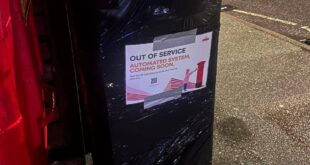Hull and the UK are seeing an upswing in strike action amid spiralling living costs, with workers from a range of sectors walking out as inflation squeezes pay.
Barristers were the latest workers to walk out today (Monday, June 27) after 81.5 per cent of the 2,055 Criminal Bar Association (CBA) members balloted voted to strike. CBA Chair Jo Sidhu said a barrister exodus from criminal law saw 567 trials adjourned last year because of manpower shortages amid coronavirus backlogs.
Justice Secretary Dominic Raab said the walkouts were regrettable and claimed they would delay justice for victims. Those walk outs followed strikes staged by the National Union of Rail, Maritime and Transport Workers (RMT) last week, the first since 1989.
Read more:Should teachers be allowed to strike? Have your say
Rail staff took to picket lines outside Hull Paragon Interchange and elsewhere after pay talks with the Government, Network Rail and National Rail reached an impasse. RMT General Secretary Mick Lynch accused Transport Secretary Grant Shapps of wrecking talks by stopping Network Rail from withdrawing a letter threatening redundancies for 2,900 workers.
Mr Shapps accused the RMT of trying to bring the rail network to a halt but also wrote in The Telegraph the post-pandemic rise in home working limited their efforts. The dispute and the prospect of future industrial action saw the Government unveil laws designed to undermine strikes by repealing restrictions on hiring agency staff during them.
The proposals also include raising the maximum amount courts can order unions to pay in damages to companies for strike losses. The maximum the largest unions would have to pay out would rise from £250,000 to £1m if the proposals are enacted.
The Transport Secretary lent his support to the proposals saying they were vital to limiting disruption caused by walk outs. Business Secretary Kwasi Kwarteng said: “Repealing restrictions will give businesses freedom to access fully skilled staff at speed, all while allowing people to get on with their lives uninterrupted to help keep the economy ticking.”
But TUC General Secretary Frances O’Grady accused the Government of picking fights with unions rather than trying to negotiate settlements to end strikes. Ms O’Grady said: “Bringing in less qualified agency staff to deliver important services will endanger public safety, worsen disputes and poison industrial relations.”
Industrial action is taking place against the backdrop of spiralling living costs, with inflation running at 9.1 per cent as of May according to the latest figures. ONS data showed the figure was up from 9 per cent in May and the Bank of England has forecast inflation as high as 11 per cent later this year.
What follows is a summary of present and potential future strikes affecting Hull and the East Riding, along with the rest of the country. Unions have balloted workers for strikes not only because of the cost of living but also because of issues particular to their industries.
Barristers
Barristers from across England and Wales walked out today, chiefly over shortages of specialist criminal lawyers which is stymieing efforts to clear pandemic backlogs. Figures from HM Courts and Tribunals Service (HMCTS) show outstanding cases numbered 58,270 at the end of April.
The total was down from 58,818 at the end of 2021 but up from 57,870 at the end of March, according to the figures released earlier this month. Outstanding cases are also up from 41,068 at the end of March 2020, shortly after the first coronavirus lockdown began and 33,329 when they were at an all time low.
CBA members almost unanimously rejected an offer to increase their fees by 15 per cent this year which the union claims would only be fully seen by late 2023.
Postal workers
The Communication Workers Union (CWU) served notice of a one-day walk out on Monday, July 11 across the UK’s 114 Crown Post Offices. Crown Post Offices are larger branches usually found on high streets.
CWU members voted 97.3 per cent to reject a 3 per cent pay rise and a £500 lump sum after their pay was frozen last year. It is the third national Post Office strike this year.
Meanwhile, ballots are due to be sent out to CWU members in Royal Mail from tomorrow (Tuesday, June 28) with results set to be announced in July. Delegates at the CWU’s annual conference in April rejected a 2 per cent offer from the company.
Hull is home to a Royal Mail depot in St Peter Street and the company’s staff delivers post to homes and businesses across the city and in the East Riding. Unite is also balloting 2,400 managers across 1,000 workplaces over plans to axe 542 front line roles and redeploy others, with the vote set to close on Wednesday.
Railways and transport
The RMT strike ended on Sunday morning but General Secretary Mr Lynch said more could come later this year if the union fails to strike a deal with employers. Hull Trains staff were set to walk out yesterday but their union ASLEF called the strike off following talks with the company.
ASLEF members on Croydon Tramlink are still set to walk out tomorrow and on Wednesday as part of an ongoing pay dispute. Elsewhere, around 700 British Airways airport staff at Heathrow are set to strike in July after the company cut their pay by 10 per cent during the pandemic.
GMB members rejected a one-off payment of 10 per cent this year and are pushing for basic pay to be restored. Ryanair cabin crew in France, Italy Spain and Portugal also began walkouts on Friday for a week’s worth of walkouts which could affect flights from the UK.
Education
The National Education Union (NEU), which represents teachers across the UK, has written to Secretary of State Nadhim Zahawi calling for pay increases over and above inflation this year. The call, which also includes pay increases of education support and supply staff, will be followed by ballots for industrial action if members reject the Government’s offer the union said.
The Government has proposed a 3 per cent pay increase to the School Teachers’ Review Body. The NEU stated ballots for industrial action could be sent out in the Autumn term if pay talks break down.
The NEU has around 450,000 members across the UK and has branches in Hull and the East Riding. The teachers’ union NASUWT has called for a 12 per cent pay rise for its members and warned it could ballot members in November if an alternative offer is rejected.
Health
The British Medical Association (BMA) has called for the full restoration junior doctors’ pay which it claims has been eroded by 22 per cent since 2008. Junior doctors are guaranteed pay rises of at least 2 per cent for this financial year under a deal reached in 2019.
BMA members have already backed a campaign to get pay rises which cover what the organisation claims is real terms salary cuts over the last decade. The BMA also warned it could ballot junior doctors for industrial action if a pay offer is deemed inadequate and walk outs could begin by early 2023.
The Royal College of Nursing (RCN) has called for a 5 per cent pay increase above inflation for its members and has also suggested it could ballot for strikes. The Government’s pay offer for them currently stands at 3 per cent.
Read next:



